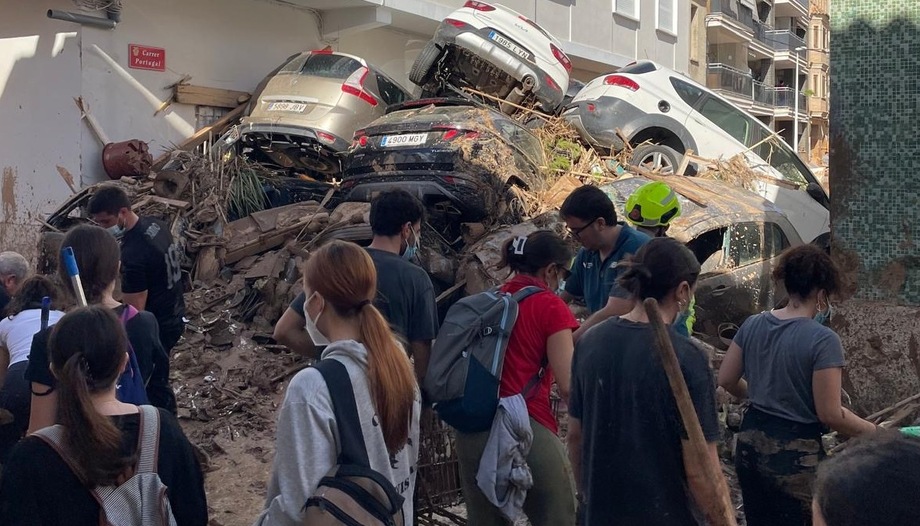It all started with an email from the Universitat de València; tomorrow's classes were cancelled due to the rains. The message arrived while I was having dinner, and it left me very surprised, as I had no idea of the magnitude of the situation. I guess nobody did.
The next morning passed normally, the sky was cloudy, but hardly a drop of water fell in Valencia capital. As a university student, I took the opportunity to study, avoiding the catastrophe that was happening a few kilometers away from my college.
The picture changed at eight o'clock in the evening when the message from Civil Protection arrived on my cell phone. That calm of not having class came to an end, and I was still unaware of what was happening.
I started going on social media and the mainstream media to find out what was going on. Towns where my class friends live were completely flooded, cars were being washed away, and people remained locked in their homes waiting for a loved one's answer to the question, "Are you okay?". Never before had that question or the latest Whatsapp connection made so much sense. Meanwhile, not knowing how to react, I went out on the terrace to try to understand what was going on. I got the call from my mother, she wanted to know how I was doing and I replied that everything was fine. But as I hung up the phone I wondered if it was so serious what was happening.
I woke up the next morning with a very strange feeling. I saw more and more videos of the tragedy. Completely spontaneously, a car was organized at the Colegio Mayor to go to a nearby town, Aldaia, to help. Little by little, word spread and more residents volunteered to drive more cars, until we were 30 volunteers who left without really knowing what was waiting for us or what time we would return.
When I got out of the car I saw the reality of a town of 31,000 inhabitants completely devastated and buried by mud. Although it seems that through the screen you can know what is really happening, it has no comparison when you live it in first person and you look at the ground and you are not able to see your shoe, because it is completely submerged in mud. In Aldaia we went through the streets asking the neighbors if they needed help, there I also asked myself why they had to live through this catastrophe and not me or my family.
In Aldaia we stopped to help at an old people's home run by nuns of the Immaculate Conception. When they saw us arrive, their faces lit up; to this day I still don't quite know why. Having the strength to smile in those moments of adversity is something that will surely stay with me for the rest of my life, and I hope to be able to follow that example. We helped as much as we could, bringing them food and trying to save the few pieces of furniture that could still be used.
That same afternoon I went to work at my newspaper, Superdeporte. It was then that I became fully aware of the catastrophe that was just a few minutes' drive from my Colegio Mayor. Colleagues whom I consider friends had lost their homes, their cars and even their wives at their workplaces; one of them, his wife who was four months pregnant. Shortly after arriving, I went out to the entrance to call my friends with whom I live, many of them still in Aldaia. We organized an outing for the next day to Paiporta, the town where the catastrophe originated. We walked for more than an hour loaded with supplies, but we were not alone; a huge queue of thousands of volunteers, full of solidarity and affection, accompanied us.
In spite of being so many people, with no desire for recognition, not even a simple "thank you", we started to help. There I was in the house of some elderly people, together with a Basque friend from the Colegio Mayor, bailing mud from a room. What surprised us the most was to see the wall: you could see pictures of the wedding of the owners of the house stained with mud. The line marking how far the water had reached on the fateful day of the flood was six feet high, a height at which I would have drowned. And, for some unknown reason, it was not me, but hundreds of people.
When the agreed time came, we started our way back home, and on the way back there was still that huge line of people willing to help. But it is not enough. Professional help is needed to save the property of those who have lost absolutely everything. And after a journey of an hour and a half there and an hour and a half back, I think that the victims, with their generosity and their smiles, have really helped me more than I have helped them.








